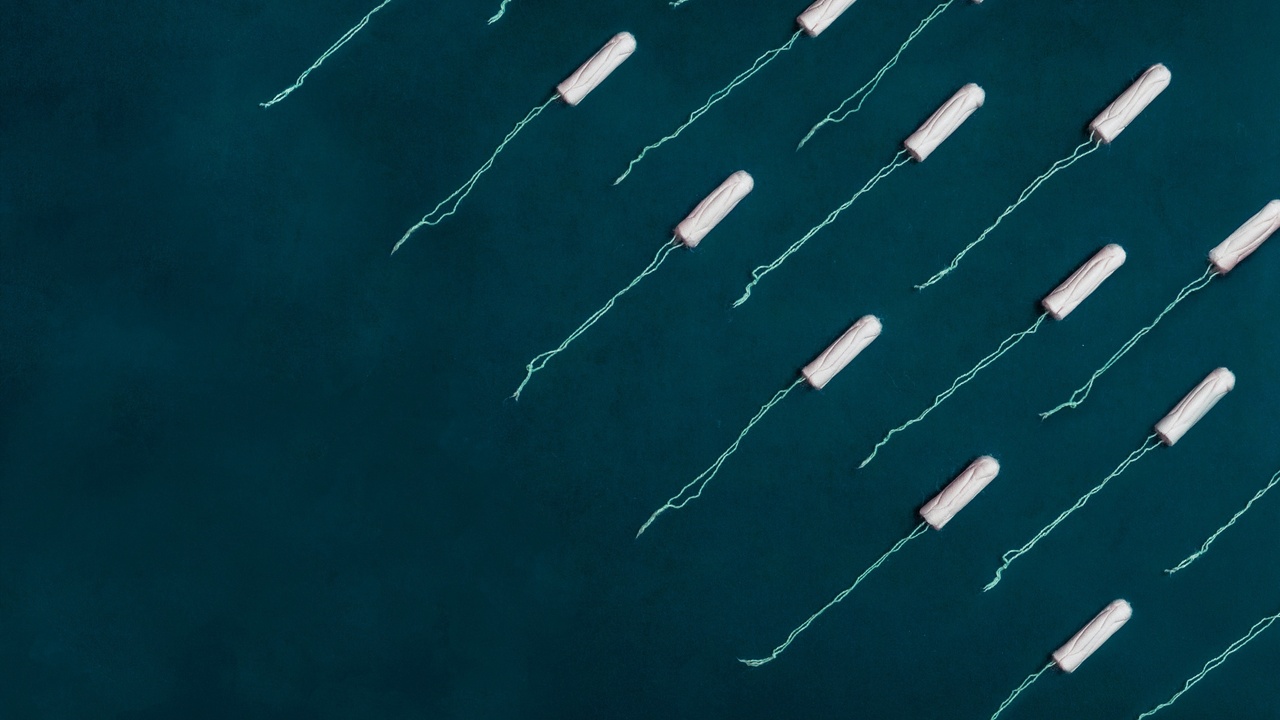Toxic Tampons

There are a lot of health issues that get the back burner, and women’s health – specifically menstrual health, is one of those.
The feminine care industry is a $2 billion dollar a year industry, and the 85% of women consumers are mostly in the dark when it comes to what is actually lurking in these products. Most of these women don’t know how these products are affecting their health.
Just like what we eat, what we put into our bodies directly affects our health. The vagina is the most absorbent organ in a woman’s body. “Unlike something you swallow, substances you place inside your vagina may not go through the body’s typical elimination and metabolic processes,” says Ami Zota, an assistant professor of environmental health at George Washington University. “Instead, tampon chemicals are absorbed by the vaginal mucosa, and from there are able to pass almost directly into your bloodstream.” Crazy, right?
When tampons are made, they go through a bleaching process which can leave trace amounts of dangerous chemicals, namely highly-toxic dioxins. Both the FDA and tampon manufacturers state that tampons are safe and that the level of dioxins is very low and doesn’t pose a health risk.
Thankfully, there are companies that are becoming more transparent with the contents of their products. Now, there are more options when it comes to nontoxic and reusable feminine hygiene products. IE: Cups, reusable underwear. There are also organic cloth pads that are reusable and made from organic cotton, hemp, or bamboo. Also, there are a number of different types of menstrual cups on the market.
So, as the conversation about women’s feminine hygiene products becomes less taboo and we’re able to really address issues regarding the dangers that they present, we’ll be able to make steps in the right direction – providing healthier options.
The more we talk about the dangers of toxins in tampons, and can be transparent with an issue that doesn’t get the attention it deserves, the healthier our bodies will become.
Be on the lookout for my blog post about alternative products we can use that are way safer for us, and the planet.
I want to hear from you!
- Was this post useful? Have you been dealing with any menstrual and/or reproductive issues? Tell me below what you’re dealing with and how you are fixing it. [email protected]
- Please share this post on social media or with any one who might need this information. Join me on Instagram for all the latest info on periods, hormones, and women's health.
- Want to be the first to know when I release a new blog post? Sign up below!
Medical Disclaimer
Information in this post and on this web site is provided for informational purposes only. The information is a result of practice experience and research by the author. This information is not intended as a substitute for the advice provided by your physician or other healthcare professional or any information contained on or in any product label or packaging. Do not use the information on this web site for diagnosing or treating a health problem or disease, or prescribing medication or other treatment. Information and statements regarding dietary supplements have not been evaluated by the Food and Drug Administration and are not intended to diagnose, treat, cure, or prevent any disease. Always speak with your physician or other healthcare professional before taking any medication or nutritional, herbal or homeopathic supplement, or using any treatment for a health problem.
